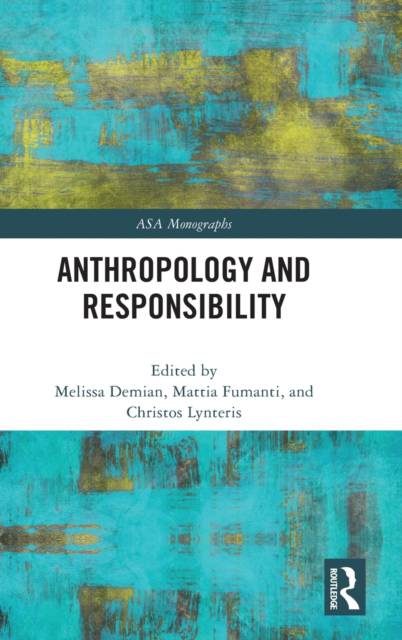
- Afhalen na 1 uur in een winkel met voorraad
- Gratis thuislevering in België vanaf € 30
- Ruim aanbod met 7 miljoen producten
- Afhalen na 1 uur in een winkel met voorraad
- Gratis thuislevering in België vanaf € 30
- Ruim aanbod met 7 miljoen producten
Omschrijving
This book explores the role and implications of responsibility for anthropology, asking how responsibility is recognised and invoked in the world, what relations it draws upon, and how it comes to define notions of the person, institutional practices, ways of knowing and modes of evaluation. The category of responsibility has a long genealogy within the discipline of anthropology and it surfaces in contemporary debates as well as in anthropologists' collaboration with other disciplines, including when anthropology is applied in fields such as development, medicine, and humanitarian response. As a category that unsettles, challenges and critically engages with political, ethical and epistemological questions, responsibility is central to anthropological theory, ethnographic practice, collaborative research, and applied engagement. With chapters focused on a variety of cultural contexts, this volume considers how anthropology can contribute to a better understanding of responsibility, including the 'responsibility of anthropology' and the responsibility of anthropologists to specific others.
Specificaties
Betrokkenen
- Uitgeverij:
Inhoud
- Aantal bladzijden:
- 220
- Taal:
- Engels
- Reeks:
Eigenschappen
- Productcode (EAN):
- 9781032283807
- Verschijningsdatum:
- 31/03/2023
- Uitvoering:
- Hardcover
- Formaat:
- Genaaid
- Afmetingen:
- 156 mm x 234 mm
- Gewicht:
- 489 g

Alleen bij Standaard Boekhandel
Beoordelingen
We publiceren alleen reviews die voldoen aan de voorwaarden voor reviews. Bekijk onze voorwaarden voor reviews.










